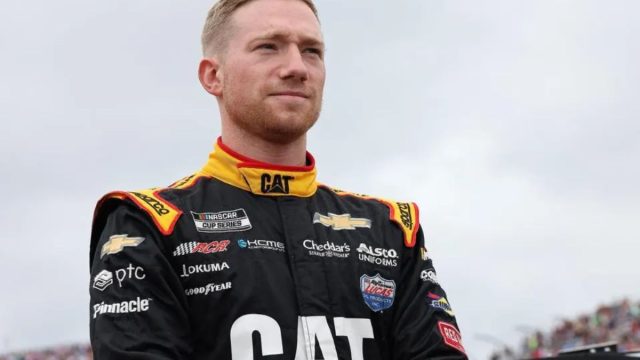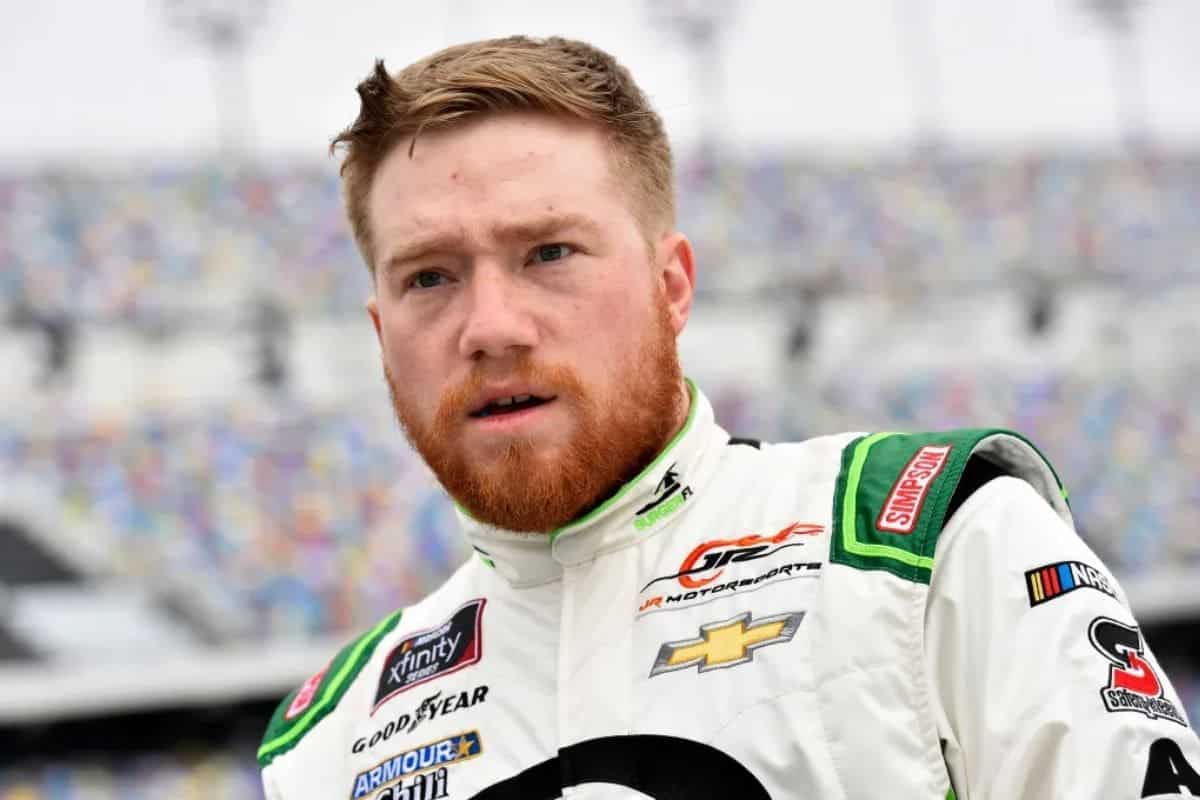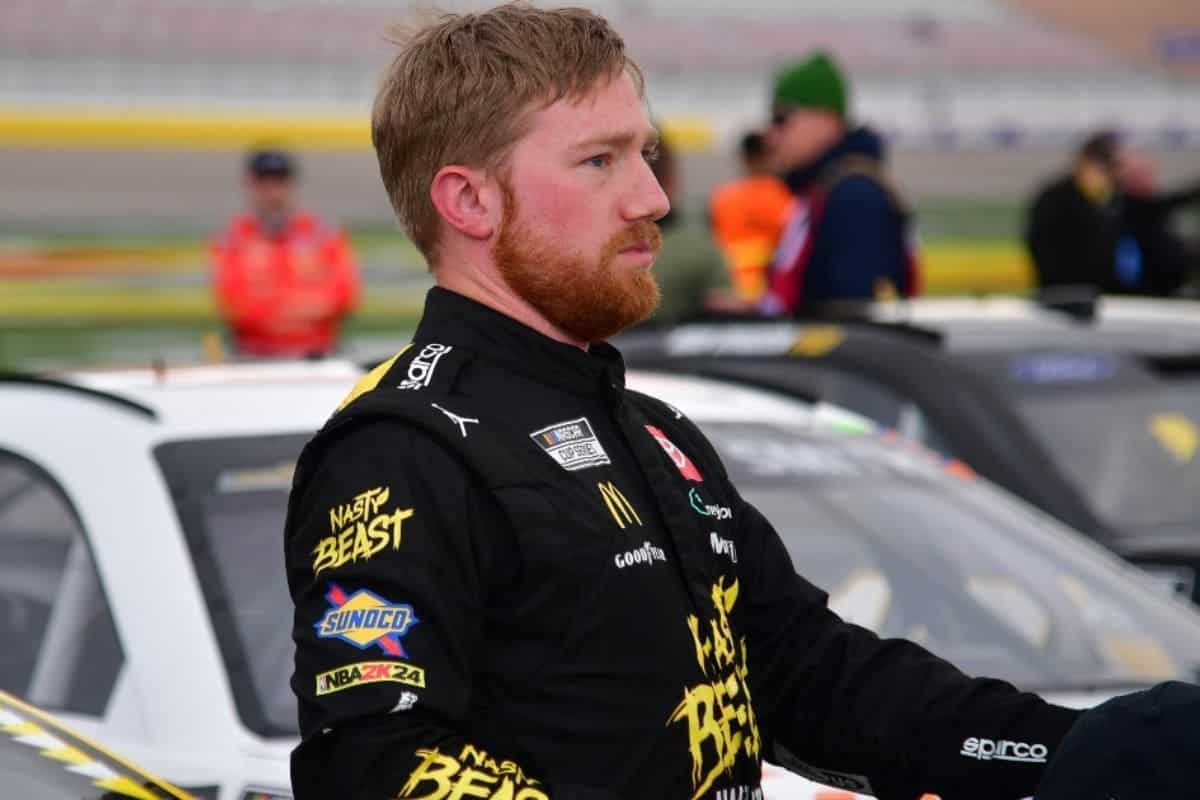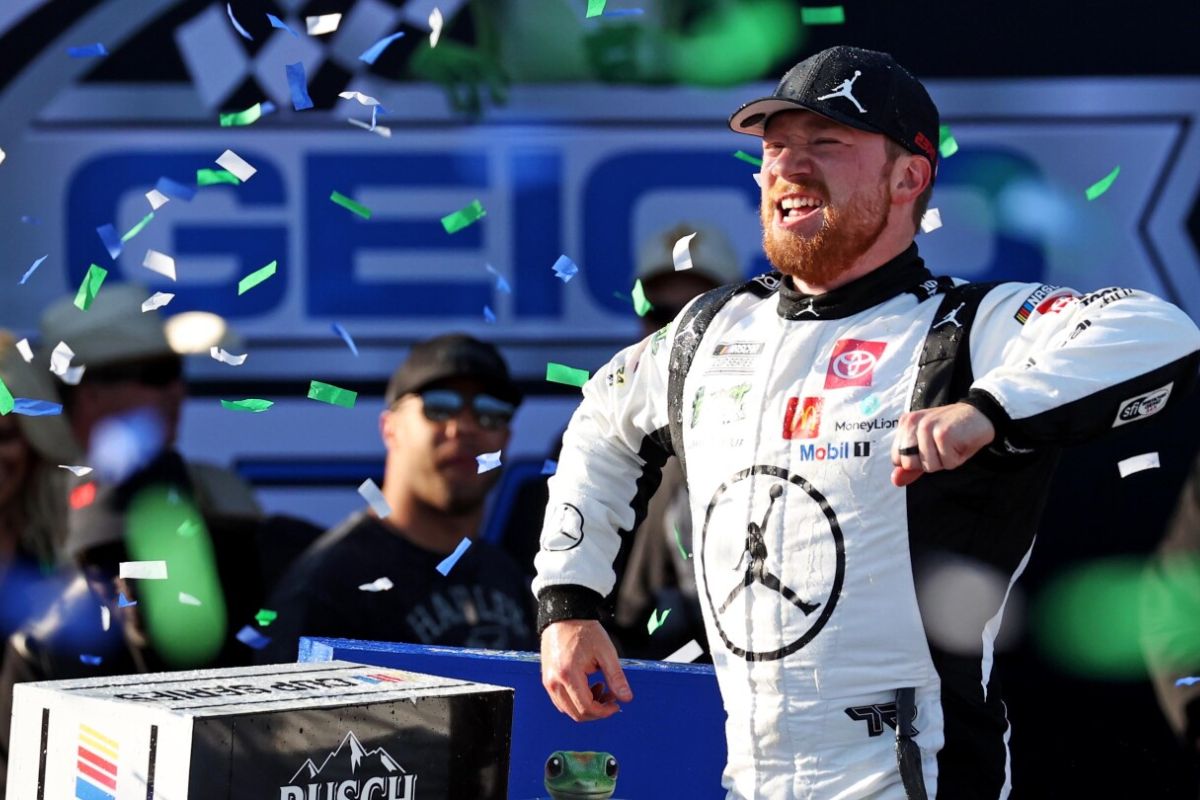Tyler Reddick’s Apology: In the aftermath of the events at Darlington Speedway, Tyler Reddick’s public apology for his role in the on-track incident with Chris Buescher serves as a crucial moment in professional motorsports. This incident stirred the racing community and spotlighted the ethical standards expected in high-stakes competitions like NASCAR. By analyzing Reddick’s response, one can delve into the broader implications of such public admissions on an athlete’s career and their relationships with peers. Additionally, this situation prompts a discussion on the balance between competitive aggression and the ethos of sportsmanship.
Key Takeaways
- Tyler Reddick publicly apologized for causing a collision with Chris Buescher during the final laps of the Goodyear 400 at Darlington Speedway.
- The apology followed a post-race confrontation where Buescher expressed his frustration over the incident.
- Reddick admitted his overly aggressive driving and misjudgment were the primary reasons for the crash.
- The incident and apology were significant as they occurred during a critical moment in the race, affecting both drivers’ outcomes.
- Reddick’s acknowledgment and apology aim to mitigate tension and maintain professionalism within the racing community.
Tyler Reddick’s Aggressive Move Ends Chris Buescher’s Race
In a crucial move during the final laps of the Goodyear 400 at Darlington Speedway, Tyler Reddick’s aggressive overtaking attempt resulted in a collision with Chris Buescher’s No. 17 car, ending Buescher’s participation in the race. This critical moment not only dashed Buescher’s hopes for a victory but also markedly impacted the dynamics of the race, highlighting the razor-thin margins and elevated stakes inherent in NASCAR racing.
Analyzing the incident, Reddick, in a bid for a late-race advantage, attempted a risky maneuver by trying to squeeze past Buescher on the inside track. The tight confines of Darlington, known for its unique, egg-shaped layout and narrow racing grooves, make any overtaking attempt a precarious effort. Reddick’s move revealed a crucial misjudgment in spatial assessment and timing.
The collision resulted from a combination of high speeds, the challenging track geometry, and perhaps a momentary lapse in strategic decision-making. At this point in the race, drivers are under immense inspection to position themselves advantageously, and the urge to make decisive moves can sometimes lead to disastrous outcomes.
Aftermath of the Race
Following the race-ending wreck at the Goodyear 400, a visibly frustrated Chris Buescher confronted Tyler Reddick on the Darlington pit road, marking a significant post-race escalation. This confrontation stemmed from a critical moment in the race where aggressive driving tactics led to catastrophic outcomes for parties involved. Buescher, experiencing back-to-back weeks of racing heartache, approached Reddick immediately after their cars had been cleared from the track.
The face-to-face encounter on the pit road was not just a spontaneous outburst but a reflection of the challenges and demands inherent in professional racing. Here, every race is a battle not just for points but for professional reputability and career advancement. In this high-stakes environment, emotions often run high, particularly when incidents on the track have direct repercussions on season standings and driver safety.
One more look at what happened on pit road between @Chris_Buescher and @TylerReddick. pic.twitter.com/PBYHV62dgc
— NASCAR (@NASCAR) May 13, 2024
Moreover, the confrontation highlighted the evolving dynamics of race etiquette and the unspoken codes of conduct that govern driver interactions. While physical clashes are rare, verbal confrontations are part of the sport, serving as releasing and as public statements to fans and officials about perceived injustices during the race.
Reddick’s subsequent public apology, while cooling tensions, also brought attention to the complex interplay of competition, professionalism, and sportsmanship.
Buescher Expresses Frustration
Despite his efforts to maintain composure, Chris Buescher’s post-race interview revealed deep-seated frustration stemming from an incident that dashed his hopes for a victory, which he attributed to a costly error by Tyler Reddick. Buescher, who had been performing exceptionally well throughout the race. The incident not only affected his standing in this particular race but also had implications for his season’s momentum.
“You need to be better. We’ve raced each other just fine for so long.”-(chris)
Analyzing the situation, it’s apparent that Buescher had strategically positioned himself as a leading contender. His vehicle’s setup, combined with his driving expertise, had aligned perfectly for what could have been a successful finish.
“I mean, we were wrecked. That one’s clear as day, you don’t need any camera to tell. I’m just really pissed off about it right now. We certainly had a chance to win another one… I got used up, and he knows he messes up, he said it but it doesn’t change anything for us. That’s two weeks in a row we’ve had shot to win races and one I’m going to wither my head forever on what I would’ve done different. This one here, I need someone else to be more mature about it.”-(chris)
For a driver in Buescher’s position, every race is a calculated effort towards accumulating points and prestige, and incidents like these represent significant setbacks.
Reddick Takes Responsibility for the Wreck
Tyler Reddick openly admitted his role in the unfortunate collision with Chris Buescher, acknowledging that his overly aggressive driving was the primary cause of the mishap that impacted both their chances in the race.
“Yeah, I completely understand where he’s coming from. He’s run the top, run his own race, and run his own line. Yeah, I made a really aggressive move, and I was hoping I was going to clear him, and when I realized I wasn’t going to, I tried to check up and not slide up into him. I wish I wouldn’t have done that… It’s tough to walk away knowing that I used someone up and took their chance away from winning the race.”-(reddick)
Reddick’s admission came at a crucial point, following Buescher’s vocal frustration, which painted a clear picture of the high stakes and intense emotions present in professional racing. Reddick’s approach to taking responsibility sheds light on the psychological challenges faced by drivers who often navigate the fine line between assertive racing and recklessness.
It’s visible that Reddick’s regret was not just about the immediate loss but also about the broader impact on his professional rapport and integrity. By stepping forward and owning up to his mistake, Reddick not only sought to mend fences with Buescher but also aimed to restore his image among peers and fans.
Future Implications
As we evaluate the consequences of Tyler Reddick’s admission, it becomes imperative to examine the potential long-term effects this incident may have on his career and relationships within the racing community. The collision at Darlington, which saw Reddick and Buescher finishing at the back.
Reddick’s public acknowledgment of his mistake, while showing a commendable level of accountability, does not erase the potential strategic animosity it may have fostered. Buescher and his team might carry a justifiable wariness into future races, possibly influencing their tactical decisions when racing in proximity to Reddick. This dynamic could lead to heightened on-track tensions and a cautious—or even adversarial—approach that might affect race strategies and outcomes.
Moreover, Reddick’s image, with fans and within the broader professional community, hinges on the perceptions of his conduct and sportsmanship. Reactions to his apology and future conduct will play a critical role in shaping his public persona and career trajectory.
News in Brief: Tyler Reddick’s Apology
The incident at Darlington Speedway serves as a crucial moment in reinforcing the principles of accountability and professionalism in NASCAR. Tyler Reddick’s public apology for his aggressive driving, which led to the termination of Chris Buescher’s race, highlights the necessity of maintaining sportsmanship despite the intense competition.
This event not only affects Reddick’s personal image and relationships within the racing community but also sets a significant example for conduct and responsibility in professional racing environments.
Our Reader’s Queries
Q. How many NASCAR wins does Tyler Reddick have?
A. Reddick boasts a total of 10 wins in his Xfinity Series career.
Q. Did Tyler Reddick race sprint cars?
A. Reddick’s accolades include being a two-time champion in the NASCAR Xfinity Series, clinching back-to-back titles in 2018 and 2019. His journey in racing commenced at the tender age of four, kicking off in Outlaw Karts. From there, he swiftly transitioned to competing in mini sprints, midgets, dirt late models, and sprint cars, showcasing his versatile skills on various tracks.
Q. What car will Tyler Reddick drive in 2024?
A. In a notable partnership debut, MoneyLion steps in as Tyler Reddick’s sponsor for the first time in 2024, making their presence felt at Martinsville. NASCAR Creative Design offers a glimpse of the collaboration. Additionally, fans can anticipate the return of the iconic Monster Energy scheme adorning Reddick’s No. 45 Toyota at Bristol, adding a nostalgic touch to the racing scene.
ALSO READ: Tyler Reddick Disappointed by 23XI Racing Downgrade”



